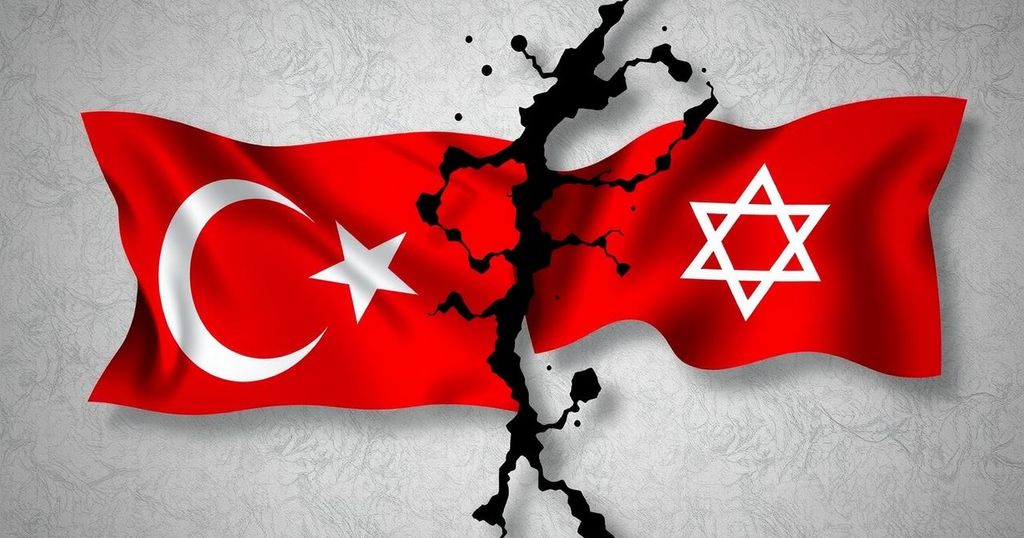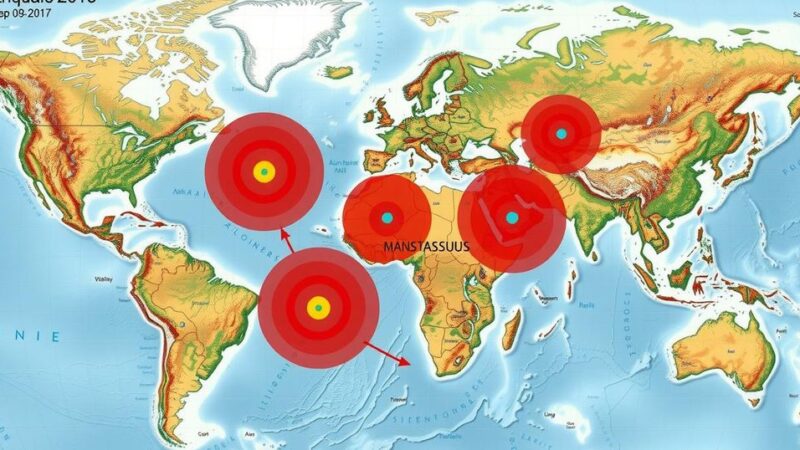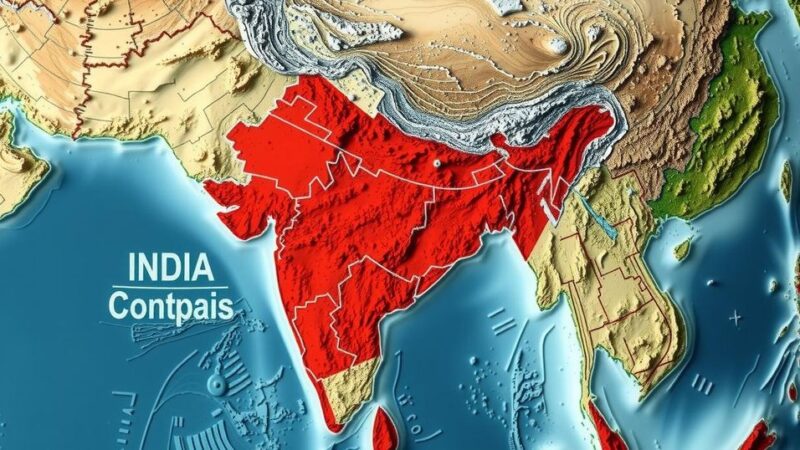The already strained relations between Turkey and Israel are worsening amid escalating conflicts in Syria and heightened anti-Israeli sentiment led by President Erdogan. The ongoing war between Israel and Hamas and Turkey’s ambitions in the region heighten the risk of direct confrontation, complicating an already volatile diplomatic landscape. Analysts indicate that if current trajectories persist, military conflict could become unavoidable, profoundly impacting both nations and the broader region.
The strained relationship between Turkey and Israel is facing further complications as recent events in Syria increasingly position the two nations in opposition. Demonstrations in Istanbul have again reignited anti-Israeli sentiments among Turkish citizens, largely driven by President Recep Tayyip Erdogan’s longstanding rhetoric and pro-Palestinian stance following significant escalations in the Israel-Hamas conflict.
The conflict, which reignited after Hamas’s pivotal attack on October 7, 2023, has evolved into a multi-front war that alters the Middle Eastern power dynamic. Erdogan’s realization of the seriousness of Israel’s military actions against Hamas has diminished hopes of collaboration, and his alignment with the Muslim Brotherhood ideology has deepened this crisis in bilateral relations.
Moreover, the recent instability following the potential collapse of the Assad regime in Syria poses additional challenges. Turkey seeks to extend its influence over U.S.-backed Kurdish forces, while Israel continues to nurture covert ties with these groups. This proximity increases the possibility of direct confrontations, with experts suggesting that the potential for armed conflict between Turkey and Israel has not been this pronounced in recent history.
Historically, the ties between the two nations have been fraught with hostility, yet they have managed to maintain formal diplomatic engagement despite numerous crises. Key events have included the tragic incident involving a Turkish flotilla aimed at breaching Israel’s blockade of Gaza in 2010, which resulted in fatalities and considerable fallout.
As both countries navigate this fraught landscape, Erdogan’s domestic political pressures compel him to adopt a more confrontational stance towards Israel, while Netanyahu’s government reciprocates with accusations of animosity towards Turkey. Diplomatic tensions have fluctuated over the years, with previous attempts at reconciliation proving fragile.
The ongoing conflict in Gaza, marked by mutual restrictions on trade, has led to further deterioration of ties, impacting tourism—a critical component of their relationship. Recent military deployments as both nations exert their influence in Syria signal an escalation of tensions, bringing their interests into direct conflict.
As both Turkey and Israel forge ahead with their respective agendas, the future of their relationship remains precarious. Analysts agree that unless a significant shift occurs, the potential for confrontation cannot be dismissed. Each nation seeks to secure its regional interests amid the looming specter of Iranian influence, reinforcing the complexities of this already tenuous relationship.
The relationship between Turkey and Israel has been historically marked by periods of both alliance and profound conflict, particularly influenced by regional geopolitical shifts and internal political pressures. President Erdogan’s administration has positioned itself vocally against Israeli actions, aligning with Palestinian advocacy while simultaneously navigating Turkey’s regional ambitions, especially regarding Syria. The current crisis escalates with Turkey’s focus on influencing Kurdish regions and Israel’s strategic interests in countering Iran’s regional presence, laying the groundwork for potential confrontations that could disrupt both nations’ security and political objectives.
In summary, the potential for a direct military confrontation between Turkey and Israel is increasingly probable as tensions arising from the Syrian conflict and the Israel-Hamas war exacerbate existing hostilities. Both nations are simultaneously attempting to assert their interests in a rapidly evolving geopolitical environment, with Erdogan’s domestic pressures and Netanyahu’s strategic calculations further complicating the relationship. While historical tensions provide context, the current landscape suggests that without substantial diplomatic efforts, the risk of conflict remains on the horizon.
Original Source: www.jpost.com







